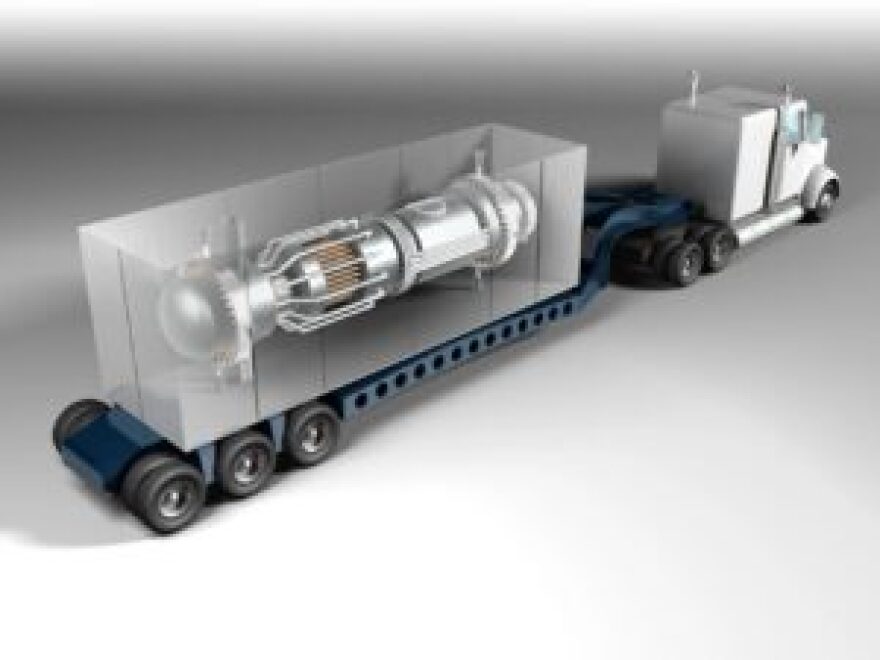The Pentagon may move ahead this summer on a proposal to build a small self-contained nuclear power plant on Eielson Air Force Base. A senior Air Force official updated state lawmakers on the project last week.
It’s been six months since Air Force Assistant Secretary Ravi Chaudhary announced with great fanfare in Fairbanks that the service had decided to award a contract to build and operate the first microreactor on a U.S. military installation.
“I am super-excited to announce the Notice of Intent toward selection of our first microreactor technology to Oklo Incorporated,” Chaudhary said in an event held on the University of Alaska Fairbanks campus.
But a couple of weeks later, the Air Force rescinded the decision to tentatively award the contract to the California based Oklo, because another company protested. And since then, military officials have said very little about the proposal. Until last week.
“The Notice of Intent to Award was then reissued in February, and then in March, a bidder then submitted a GAO protest,” Nancy Balkus, another Air Force assistant secretary, told a group of Alaska lawmakers on March 18.
“So that’s where we stand today,” Balkus told members of the state Senate Resources Committee during an update on the microreactor project.
Balkus told committee members the protest filed this month with the federal Government Accounting Office must be resolved with 100 days, by June 20. She couldn’t provide details about the protest, but said the Air Force remains determined to stick to its original schedule and have the microreactor operational in 2028.
“We believe that having documented the entire process,” she said, “that the next, second, third and fourth will take less time to implement, because we will have established a path.”
When questioned by committee co-chair Sen. Cathy Giessel, R-Anchorage, about the cost of the project, Balkus said that’ll be worked out after the contract is finalized.
“We do not have a cost figure at this time,” she said. “That will be negotiated with the vendor once they have gotten through the design and licensing process.”
Balkus said the contractor will build and operate the facility, and the Air Force will purchase the electricity and heat it generates. In response to a query by co-Chair Sen. Click Bishop, R-Fairbanks, about how the reactor will be refueled, she said that’s also yet to be determined.
“Will the entire assembly be taken back to the manufacturing plant? Will a new unit be coming in with new fuel already loaded into it? We don’t have that level of detail at this time,” she said.
The 5-megawatt facility would generate only about a third of the electricity Eielson requires. But Balkus suggested that if the initial pilot project is successful, additional microreactors could be brought to the base to increase energy output.
Bishop told Balkus that he hopes there won’t be any more delays, because he says microreactor technology holds great promise for both reducing greenhouse-gas emissions and helping Alaska solve stubborn economic problems by finding less-expensive ways to generate electricity.
“If we’re going to be competitive and stop the outmigration and bend the curve on our GDP going the wrong direction, and want to grow Alaska,” he said, “we have got to have – I call it cheap energy.”
Bishop said in an interview Friday that Alaska’s elected leaders have taken steps in the right direction over the past couple of years with legislation that promotes development of electricity-generating microreactors. Those include Senate Bill 177, a measure adopted in 2022 that clears some state regulatory hurdles, and a separate package enacted last year that among other things dictates where microreactors may be built in Alaska.



